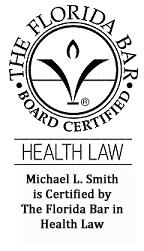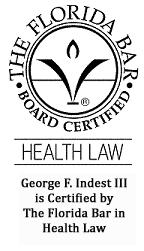


Legal Opinion Letters, Health Care Business Transaction Opinion Letter, Health Care Merger or Acquisition Opinion Letter, Opinion Letter for Financing of Health Care Business, Medical Business Transaction Opinion Letter, Dental Business Transaction Opinion Letter
The health care industry is the most highly regulated business in the U.S. There is a complex layer of federal laws and regulations that applies to almost all health-related businesses and professions. Then there are also complex state laws and regulations that apply, as well. In addition there are federal and state agency guidelines, policy memos, and interpretations. Add onto this a unique, complex and voluminous set of guidelines and regulations that apply to the different sources of payment for healthcare services such as Medicare, Medicaid, Tricare, Veterans Administration (VA), workers compensation insurance, personal injury protection (PIP) insurance, and private health insurance.
But wait, there’s more: Whether there is a corporate practice of medicine prohibition differs from state to state and health profession to health profession. For example, in Florida, there is no prohibition on the practice of medicine by a corporation or business or non-physician, but there is a prohibition on the practice of dentistry, optometry and chiropractic medicine. Who could guess?
But wait, there’s more: Does the business need a completely separate health care license such as many do in Florida under Florida’s Health Care Clinic License Act or its Pain Management Clinic License Act or under its Massage Therapy Establishment License Act?
But wait there’s more: As a newly emerging area of law, health law has few cases (but significant cases) on the laws and regulations that govern the industry. However, there are even more declaratory statements by state agencies, advisory opinions by the Office of the Inspector General (OIG), and the Department of Health and Human Services (HHS), fraud warnings, antitrust opinions, Attorney General’s Opinions and other guidance routinely put out by state and federal agencies.
Significant monetary and criminal liability may be lurking right around the corner in any business transaction involving a medical-related business. Will your attorneys and experts be able to tell you what this might be? We can.
An opinion letter is a formal expression of a judgment or advice based on the attorneys’ legal knowledge and expertise in an area of law. The term “legal opinion” is commonly used to refer to a document containing a lawyer’s or law firm’s understanding of the law that applies to a particular case. Opinion letters are usually drafted at a client’s request. In the case of a medical-related transaction, the opinion letter should be one prepared by attorneys specializing in the health law field, and there are very few of us.
A legal opinion letter from a lawyer should provide a detailed and well-reasoned legal analysis of any proposed transaction or business venture stating exactly why that lawyer or law firm considers it to be a safe, legal deal or ones that risks violating federal or state laws and regulations. No complex business transaction in the health care field should be without one, especially if more than a million dollars is at stake. If your lender does not require one, you should obtain one for yourself. The main purposes of a legal opinion are: to inform the client or the lender of the possible leagl risks and effects of a transaction or matter.
A legal opinion letter may also insulate the buyer and seller from legal liability if it is later determined that the transaction violated laws or regulations. It can provide you an “advice of counsel” defense that may protect you from civil penalties and even criminal charges if you relied on it and it turned out to be wrong.
When we are requested to provide a legal opinion letter on a transaction, we review and analyze the facts of the proposed transaction that are provided us in accordance with the laws, regulations, guidelines and opinions that are discussed above. We have multiple attorneys who are board certified in health law by The Florida Bar Committee on Legal Specialization; we have multiple attorneys that hold masters of laws (LL.M.) degrees; we have multiple attorneys that are licensed health professionals as well as lawyers. We provide a detailed, thorough analysis that is reviewed by and concurred in by at least two of our attorneys.
Many states have established guidelines and commentary for opinion letters. California and New York are among such states, and lawyers closing loans in these states or other states where a state bar association has issued guidelines will generally follow the state guidelines. In states where there are no guidelines promulgated by the state bar association, lawyers may rely upon guidelines promulgated by the American Bar Association (ABA). If both lender’s counsel and borrower’s counsel would simply follow the promulgated guidelines, why then are there controversies? The common problem is that state bar associations and the ABA have simply provided guidelines to be followed.
In 1991 the Committee on Legal Opinions of the Business Law Section of the ABA’s Report entitled “Third-Party Legal Opinion Report (including the Legal Opinion Accord of the Section of Business law, American Bar Association),” (sometimes referred to as the Silverado Report), viewed its efforts as an attempt to forge “a national consensus as to the purpose, format, and coverage of a third-party legal opinion, the precise meaning of its language and the recognition of certain guidelines for its negotiations”
We can provide any type of professional opinion you or your lender desires.
Main Office • 1101 Douglas Avenue, Suite 1000, Altamonte Springs, FL, 32714
By Appointment • 37 N. Orange Ave., Suite 500, Orlando, FL 32801
By Appointment • 201 E. Government St., Pensacola, FL 32502 • Telephone: (407) 331-6620 & (850) 439-1001 • Telefax: (407) 331-3030
Medicare/Medicaid Audits, Health Care Law, Contracts, Hospital Privileges Hearings, Investigations, DEA Defense, Board of Medicine Defense, Fraud Defense, Administrative Hearings, PRN, IPN, Professional Licensing, Medicare/Medicaid Fraud Defense, Nursing Law, Compliance Plans, Hospital Law, Board of Dentistry, Board of Nursing, Board of Pharmacy, Board of Psychology, White Collar Crime, Pain Management and Pain Medicine Physician Defense, Pain Management Clinic Defense, Zone Program Integrity Contractor (ZPIC) Audit Defense, Recovery Audit Contractor (RAC) Audit Defense, Medicaid Fraud Control Unit (MFCU) Defense, Search Warrant and Subpoena Defense, Board of Psychology Defense, NBME Representation, U.S.M.L.E. Challenges, ABIM Representation, Medical Exam Cheating Defense…and more
Available in the following Florida cities and counties: Daytona Beach, Fort Lauderdale, Gainesville, Jacksonville, Key West, Melbourne, Miami, Ocala, Orlando, Pensacola, Panama City, Sarasota, St. Petersburg, Tallahassee, Tampa, West Palm Beach, Alachua, Baker, Bay, Bradford, Brevard, Broward, Calhoun, Charlotte, Citrus, Clay, Collier, Columbia, Dade, De Soto, Dixie, Duval, Escambia, Flagler, Franklin, Gadsden, Gilchrist, Glades, Gulf, Hamilton, Hardee, Hendry, Hernando, Highlands, Hillsborough, Holmes, Indian River, Jackson, Jefferson, Lafayette, Lake, Lee, Leon, Levy, Liberty, Madison, Manatee, Marion, Martin, Monroe, Nassau, Okaloosa, Okeechobee, Orange, Osceloa, Palm Beach, Pasco, Pinellas, Polk, Putnam, St. Johns, St. Lucie, Santa Rosa, Sarasota, Seminole, Sumter, Suwannee, Taylor, Union, Volusia, Wakulla, Walton, and Washington
By making this website information available for those who access it does not constitute doing business in or having a presence in any state or jurisdiction, nor does it constitute an advertisement sent to or a solicitation made in any state or jurisdiction. This firm is located in and maintains a presence in only those states where the firm maintains an actual physical office. Its attorneys are only admitted to practice in those states specifically listed on their resumes.
Available in the following states*: Alabama, Alaska, Arizona, Arkansas, Connecticut, Delaware, Florida, Georgia, Hawaii, Idaho, Illinois, Indiana, Iowa, Kansas, Kentucky, Louisiana, Maine, Maryland, Massachusetts, Michigan, Minnesota, Mississippi, Missouri, Montana, Nebraska, Nevada, New Hampshire, New Jersey, New Mexico, New York, North Carolina, North Dakota, Ohio, Oklahoma, Oregon, Pennsylvania, Rhode Island, South Carolina, South Dakota, Tennessee, Texas, Utah, Vermont, Washington, West Virginia, Wisconsin, and Wyoming
Disclaimer | Terms of Representation
The Health Law Firm logo shown above is a registered Service Mark of George F. Indest III, P.A. – The Health Law Firm, since 2007.
“The Health Law Firm” is a registered fictitious business name of and a registered service mark of The Health Law Firm, P.A., a Florida professional service corporation, since 1999. Copyright © 2024 The Health Law Firm. All rights reserved.